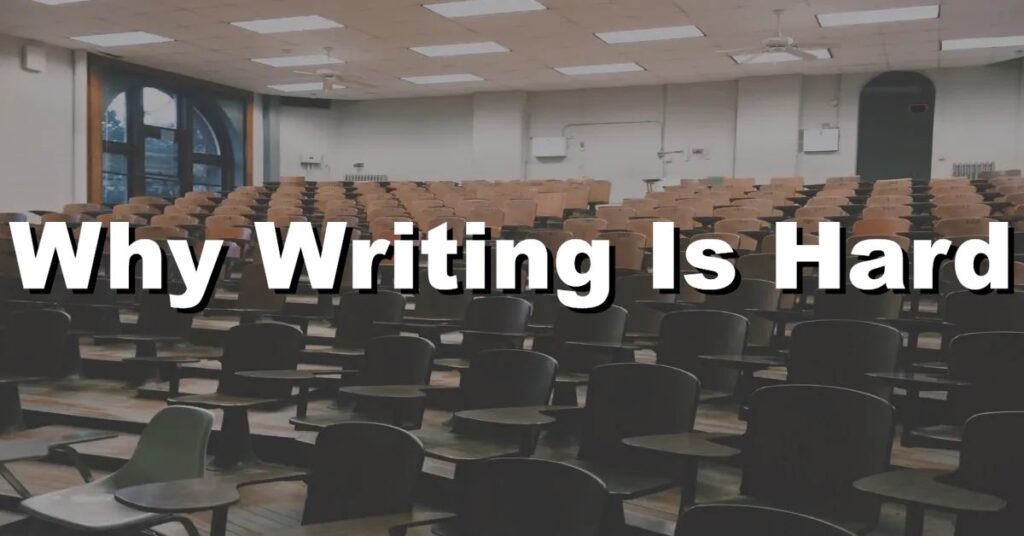Writing can be a daunting task for many, even for those who have a passion for it. From formulating ideas to putting pen to paper (or fingers to keyboard), writing requires a lot of mental effort and can be incredibly time-consuming. It’s no wonder that many people find writing to be a challenging task.
However, understanding why writing is so difficult can help you overcome the obstacles and improve your writing skills. In this blog post, we will explore the various reasons why writing is so hard, and provide you with some tips to help you overcome these challenges.
Overcoming writer’s block:
Writer’s block can be a frustrating hurdle, but there are strategies to overcome it. Start by establishing a writing routine and setting aside dedicated time for writing. Break the task into smaller, manageable chunks and focus on one section at a time.
Freewriting and brainstorming can help generate ideas, even if they initially seem unrelated. If you feel stuck, take a break, engage in activities that inspire you, or seek inspiration from other writers. Remember, the first draft doesn’t have to be perfect; the key is to get words on paper and refine them later.
Dealing with perfectionism:
Perfectionism can paralyze your writing progress. Instead of striving for flawless perfection, aim for progress and improvement. Set realistic goals and deadlines for yourself.
Recognize that writing is an iterative process, and your first draft doesn’t have to be flawless. Embrace imperfections as opportunities for growth and learning.
Allow yourself to make mistakes and view them as valuable learning experiences. Focus on expressing your ideas and refining them during the editing and revising stages.
Navigating through self-doubt:
Self-doubt is a common challenge for writers, but it can be managed. Start by acknowledging your self-doubt and understanding that it’s a normal part of the creative process.
Challenge negative self-talk and replace it with positive affirmations. Surround yourself with a supportive network of fellow writers or trusted individuals who can provide encouragement and constructive feedback. Celebrate your achievements and remind yourself of past successes. Embrace self-care practices to maintain your mental and emotional well-being.
Struggling with organization and structure:
Organizing and structuring your writing can be daunting, but there are effective strategies to help. Before you start writing, create an outline or a plan to guide your thoughts and ensure a logical flow of ideas. Use headings, subheadings, and paragraphs to structure your content.
Break down complex concepts into manageable sections and provide clear transitions between them. Revise and rearrange your writing as needed to enhance coherence and clarity. Seek feedback from others to ensure that your organization and structure effectively support your message.
Editing and revising: the final stretch:
Editing and revising are crucial steps in the writing process. Start by taking a break between writing and editing to gain a fresh perspective. Review your writing for grammar, punctuation, and spelling errors. Consider the clarity and effectiveness of your sentences and paragraphs.
Trim unnecessary information and ensure that your writing is concise and to the point. Read your work aloud to catch any awkward phrasing or lack of flow. Seek feedback from others and be open to making changes that strengthen your writing.
Embrace the mindset that editing and revising are opportunities to polish and refine your work.
Conclusion
In conclusion, writing is a complex task that can be challenging for many. However, by understanding the reasons why it’s so difficult, you can take steps to overcome those obstacles.
Whether it’s writer’s block, perfectionism, self-doubt, organization and structure, or editing and revising, there are strategies and techniques you can use to improve your writing skills.
Remember, writing is a skill that can be developed and improved with practice, so don’t give up on it! Keep pushing through the difficulties, and you’ll be on your way to becoming a better writer.

